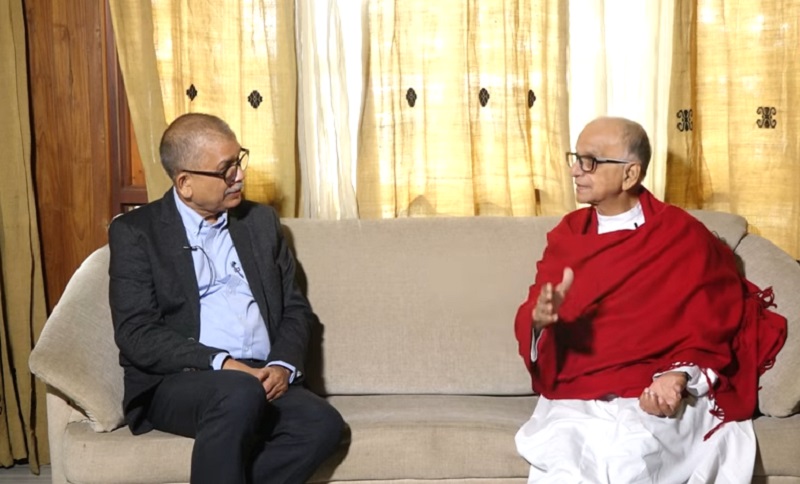Interview | Thomas Menamparampil on Northeast: Conflict, harmony, and path forward
Thomas Menamparampil is the retired Archbishop of Guwahati, Assam. He served as the Bishop of Dibrugarh for 11 years and Archbishop of Guwahati for 20 years before his retirement in January 2012. Ordained a priest in 1965 after completing his seminary studies in Darjeeling and Shillong, Archbishop Menamparampil has dedicated his life to serving the people of Northeast India.
A tireless advocate for peace, he has been nominated for the Nobel Peace Prize and received the Ambassador for Peace award from the International Human Rights Council. He was recently honored with the prestigious Dr. APJ Abdul Kalam World Peace Award 2023 on United Nations International Human Rights Day.
After retiring, Archbishop Emeritus Menamparampil established the Center for Peace, continuing his efforts to bridge divides and foster understanding among diverse communities in the region. His influential book, "In Search of Peace," reflects his lifelong commitment to peace building.
In this interview with Paresh Malakar, Thomas Menamparampil discusses a wide range of issues, including his thoughts on Northeast India, Shankardev, religious conflicts and divisions, and peace-building initiatives.
Edited excerpts:

Paresh Malakar: Archbishop Menamparampil, when did you first come to Northeast?
Thomas Menamparampil: I was born in 1936 in Kerala. As a young man, I felt a calling to missionary work. While there were priests in my family, it was an Italian missionary working in Assam who inspired me. He visited our area seeking young recruits, and I was among the first to volunteer. I was fascinated by the idea of Assam – the lush greenery, the proximity of the Himalayas, the mighty Brahmaputra.
How long have you been in Northeast India?
I've been here for about 75 years. I spent my early years studying in Shillong, then worked as a teacher and administrator in various educational institutions. In 1981, I was appointed Bishop of Dibrugarh, where I established around 20 schools. Subsequently, as Archbishop of Guwahati, I oversaw the establishment of approximately 30 more schools and five hospitals across the region.
What are your impressions of the people of Northeast?
I've been deeply impressed by the character of the various communities here. Despite occasional conflicts, I've found the people to be generally good, cooperative, and peace-loving. My interactions with students from diverse backgrounds have always been a source of encouragement for me.
You have a vast library. How do you integrate your reading with your religious and social work?
For me, reading is a source of spiritual energy. I'm interested in social issues, contemporary anxieties, and hopes for the future. Keeping abreast of current events allows me to engage in meaningful dialogue with people and contribute to their understanding of the world.
How do you address religious conflicts and divisions within society?
Unfortunately, religion is sometimes misused for egoistic or political gains. True religion, however, promotes love and compassion for all. We need to draw inspiration from figures like Ashoka, Mahatma Gandhi, and Tagore, who championed interfaith harmony and social justice.
What are your thoughts on the teachings of Shankardev?
I deeply admire Shankardev, particularly his openness to different communities. He fostered unity among diverse ethnic groups in Assam, setting a powerful example for interfaith harmony.
How do you view the current situation in Northeast India, especially in light of the recent conflicts in Manipur?
There is a period of anxiety and uneasy relationships between communities. The conflicts in Manipur are deeply concerning. I've visited Manipur several times to engage with leaders from different communities. While there is a longing for peace, the situation is complex and requires thoughtful and effective solutions.
What keeps you busy these days?
I continue to be involved in interfaith dialogue and peace-building initiatives. I travel extensively, participating in conferences and sharing my insights on inter-community relations and the search for solutions to global challenges.
Thank you, Menamparampil, for this insightful conversation.
Thank you.

